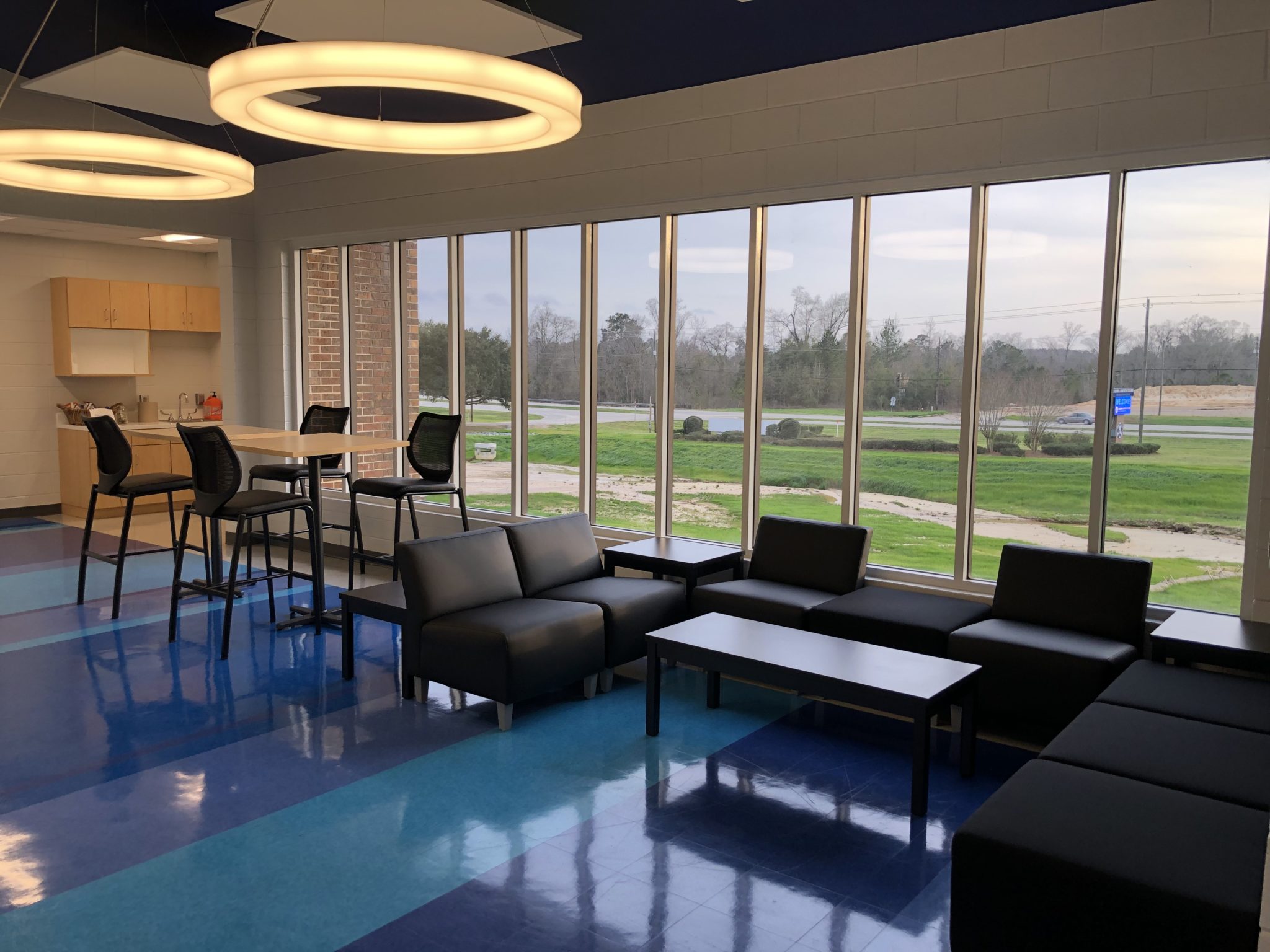Community engagement focus of project plans at ESCC
Direct community engagement will influence future capital improvement plans for Enterprise State Community College thanks to a new initiative established by the Alabama Community College System.
ASPIRE (Achieving Systemwide Potential through Increased Resources and Engagement) 2030 was established by ACCS Chancellor Jimmy Baker to inspire deeper community engagement during the strategic planning process for capital improvement projects at Alabama community colleges.
“Through the ACCS Aspire 2030 Initiative, we are encouraging our colleges to be bold and creative in their plans to add value to their communities and increase student success over the next 10 years,” Baker said. “Community is in the very name of each of our colleges, and this new strategic approach is intended to engage every sector of the community to ensure that our colleges continue to provide the meaning education, training and resources needed to help our students reach their goals and become contributing members of society.”
The new initiative was announced after Alabama lawmakers approved a $1.2 billion public school bond issue for capital improvement projects. ACCS allotted $120 million to be divided among the state’s community colleges.
“In the shortened 2020 legislative session, I was proud to be able to support the 2020 bond issue that will help with maintenance and capital improvements to the buildings in our schools across the state,” State Rep. Rhett Marques said. “That bond will provide approximately $1.2 billion to the individual school district and two-year and four-year colleges across this great state so that our children will have updated learning environments.
“At Enterprise State Community College, President Matt Rodgers and his team are doing a great job with the current infrastructure and buildings that are on the Ozark and Enterprise campuses. They have been working to upgrade and improve campus grounds and buildings over the past couple of years. With the additional funds from this bond, the ESCC staff will be able to bring the Ozark and Enterprise campuses into the 21st century with state-of-the-art amenities and technological improvements. With these improvements, students will have a better opportunity to join the workforce of tomorrow, thus drawing more economic development into the Wiregrass region. I am proud that these funds will help support our community and the great State of Alabama.”
The initiative requires each Alabama community college to receive input from internal and external stakeholder groups, including business/industry and local K-12 education systems, as part of the strategic planning process. ESCC committees met for the first time virtually on July 23.
“ESCC’s support of the ASPIRE 2030 initiative inspires creative thought, initiative and greater collaboration among our communities,” Senior Vice Chancellor Student Services and Administration Dr. John Schmidt said. “Truly, together, everyone achieves more, or simply said TEAM, describes how we might find those connectors embracing change that benefits all.”
Internal stakeholders at ESCC must complete a self-analysis of the College in an effort to identify potential capital improvement projects that would best affect the community. The self-analysis consists of questions focusing on areas the College makes an important impact, such as community or economic development, student success and adult education.
The College’s External Committee is composed of representatives of local and state government, local K-12 education systems, higher education, business and industry, the local non-profit sector and economic development. This committee will also provide feedback on potential needs, such as workforce needs, in several sectors locally and statewide.
Previous capital improvement projects were planned after two years of facilities assessments for both the Enterprise and Alabama Aviation College campuses were completed. This plan included the current Sessions Hall building project and courtyard project at the Enterprise campus and the LRC renovations and other various facilities upgrades at the Ozark campus. Other, now-completed projects from this plan were the Forrester and Talmadge Hall projects on the Enterprise Campus and Higham Building project at the Ozark campus.
“At Enterprise State, we strive to invest in projects and programs, both academic and technical, that allow us to be the college our community needs,” ESCC President Matt Rodgers said. “When we make any decision at the College, we try to make sure it aligns with our four strategic areas of focus: people, programs, facilities and, of course, community.
“The ASPIRE 2030 initiative will let us think even bigger in terms of projects for our College and our community. Thank you to our state legislators for approving these funds and ACCS for this opportunity to help our campuses grow.
“I am excited for our College to take part in this initiative, where we will work even closer with our stakeholders to develop future projects that will allow us to take our campuses to another level. While we already have made a lot of progress, we will continue to work together with our communities to improve our campuses and turn both ESCC and AAC into world-class learning institutions.”
Cutlines:
Higham 2: Renovations to Higham Building on AAC’s campus have been completed, offering more seating areas and labs specified for Mechatronics training.
##
About Enterprise State Community College
Enterprise State Community College is a comprehensive community college that serves more than 1,800 students annually between its Enterprise campus and the Alabama Aviation Colleges in Andalusia and Ozark. Each campus and site currently fulfill the Alabama Community College System’s mission for education and training which leads to high-wage, high-demand jobs in integral careers worldwide. Students can obtain associate degrees and certificates through multiple programs at the college.

